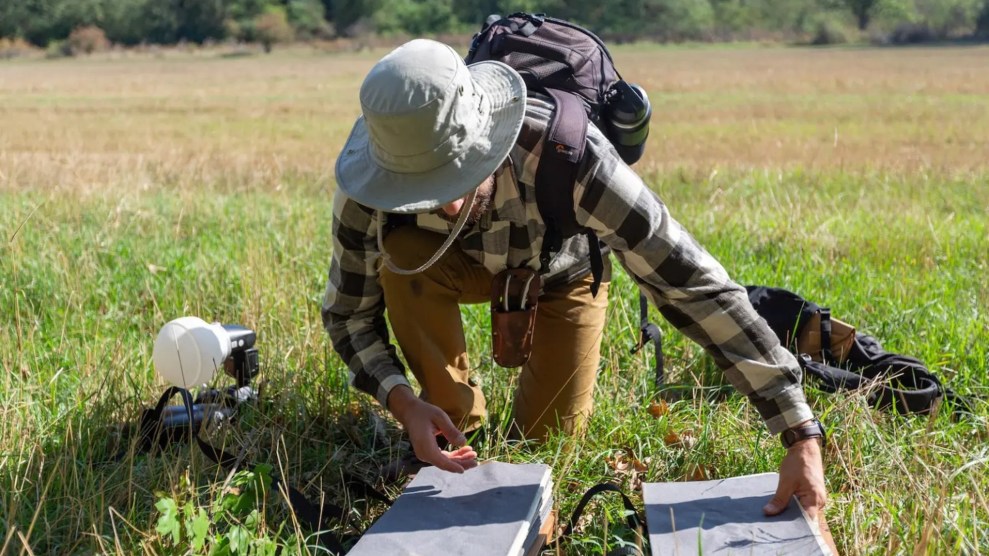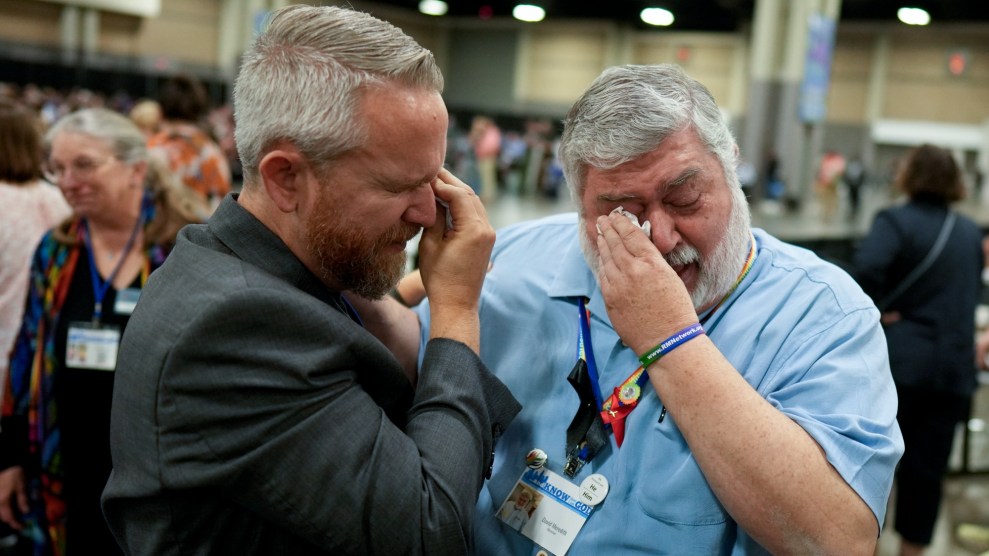As Mother Jones has been reporting, outside spending on this year’s midterm elections has reached record highs. And if the GOP succeeds in taking back the House, we might be able to expect more of the same in 2012. Especially if California’s Dan Lungren prevails in his re-election bid and ascends to the chairmanship of the House committee that shapes disclosure rules and campaign finance laws.
Lungren’s campaign against first-time candidate Ami Bera has been backed by Karl Rove’s American Crossroads, a 527 group set up to elect Republicans. The group has spent $682,000 on the race—more than it has on any other race in the country—and produced a slew of vicious attack ads. Check out this recent #truthfail-peppered attack ad against Bera:
Despite the commercial’s claims to the contrary, Bera, a physician, couldn’t actually have voted for the president’s health care plan. He’s not a member of Congress. After watching that ad, though, you couldn’t be blamed for thinking the opposite. That sort of fact-flexibility is typical in this year’s outside spending spree.
Lungren is currently the ranking member of the House Administration Committee, which oversees campaign finance matters. If the GOP takes back the House and Lungren gets re-elected (it’s currently a close race, but the polls favor the incumbent), he’ll be in line to assume its chairmanship. From there, he’ll be in a prime perch to undo what’s left of campaign finance regulation.
In a recent interview with the Sacramento Bee, Lungren argued that one of the campaign finance system’s central problems is the caps it imposes on direct donations: an individual can’t give more than $2,400 per election to a congressional candidate. Lungren wants to eliminate these limits and allow individuals to donate unlimited sums of money directly to candidates and parties.
“You’re going to have money flowing, and I would rather have the money flowing to the candidates,” he said. “You’d still have a lot of money, but (donors) would be identified with the party and with the candidate.” The only restrictions he’d want to impose are on large donations made within a week of an election, and he’s called for speedier public disclosure of donations to candidates.
Lungren says he wants to curb the influence of shadowy independent groups like another Rove-linked group, Crossroads GPS, a non-profit affiliate of American Crossroads that doesn’t have to disclose its donors. Yet, just the same, Lungren defends those groups’ right to keep their donors private—the very thing that makes them attractive to big dollar donors, and keeps the flood of unchecked cash flowing. To justify this, Lungren invokes the civil rights movement:
Lungren stops short of calling on these sorts of corporations to identify their donors, citing a 1958 Supreme Court ruling that allowed the NAACP to refuse to turn its donors over to Alabama state authorities. Lungren says donors to such groups ought to be able to maintain anonymity because “governments can intimidate individuals.”
Chairing the committee that writes campaign finance law would be a coup for a deregulation-hawk like Lungren. If Lungren wins re-election, secretive groups and operatives like Karl Rove will have even less trouble turning 2012 into another record year for campaign fundraising.














